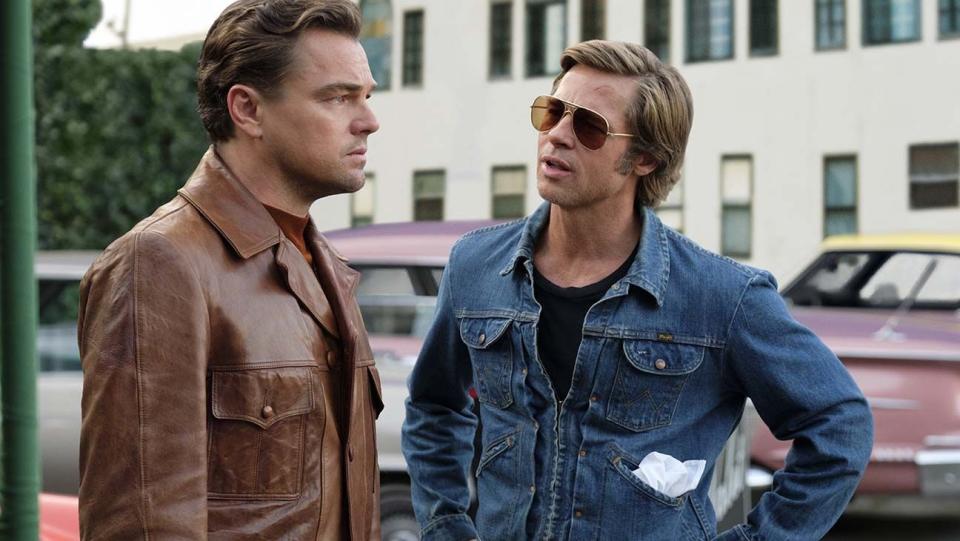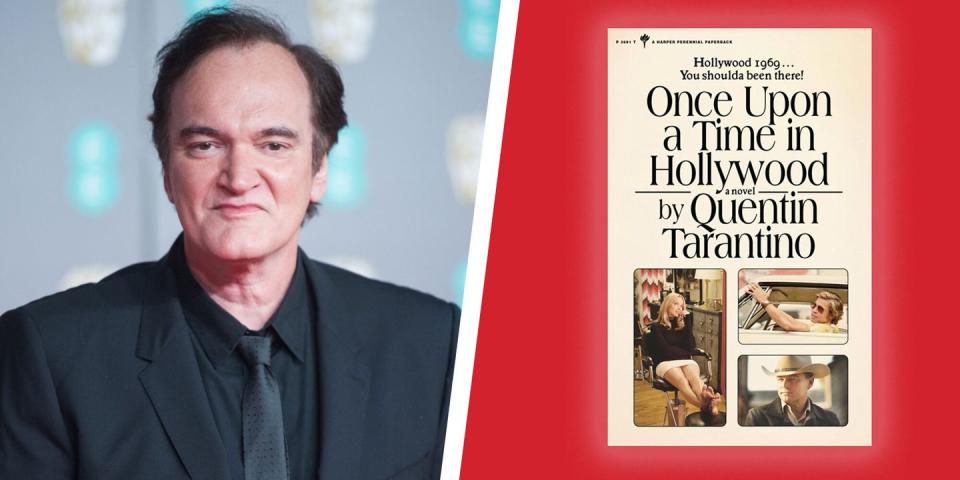Quentin Tarantino’s First Novel Is a Must-Read for Fans
There's a lot of connective tissue between the films of Quentin Tarantino, but perhaps the most common is length. His directorial debut, 1992's crime thriller Reservoir Dogs, was a brisk 99 minutes. His next film, 1994's forever treasured Pulp Fiction, clocked in at more than 2-and-a-half-hours, and the remainder of his filmography remained in that same range. The lone exceptions—2007's Death Proof (just over two hours) and both Kill Bill films (more than four hours combined)—are easily excusable; Death Proof was part of a double feature initially (Grindhouse, which also included Robert Rodriguez's Planet Terror), and Tarantino himself considers Kill Bill as one film, split into two parts. The man knows his length, and tends to stick to it.
In turn, it doesn't exactly come as a surprise that one of Tarantino's longest films—2019's Once Upon a Time In Hollywood, which clocks in at just over 2 hours and 40 minutes—serves as the source material for a brand new medium: a novel. But what does come as a surprise is that the book, released in mass-market paperback format (you know, the kind you see for sale at the airport, in the supermarket, et cetera), is a pocket-sized 390 pages. And in those 390 pages, the celebrated director-turned-first-time-author manages to tell a story based on one of his finest movies that not only retells part of that movie's plot, but expands upon it, and manages to feel like something brand new at the same time.
Let's be entirely clear—if you're not a fan of Tarantino's movies, this novel isn't about to win you over for the first time. The novel takes everything that features prominently in his films—layered, imperfect characters; stories within stories within stories; dialogue that, for better or for worse, feels like a Tarantino movie—and turns it into prose.
One early example takes viewers inside the mind of Cliff Booth, the character played in an Academy Award-winning turn by Brad Pitt, as he watches an old TV show called Mannix in a scene familiar to those who've seen the movie: when he returns home to his trailer, feeds his dog, and eats macaroni and cheese.
Cliff likes Mannix, both the show and the dude Mannix. Joe Mannix is his kind of guy. In fact, there's a part of Cliff that kind of wishes he was Mannix. And if he was Mannix, the first thing he'd do is fuck Peggy. Cliff is also a big fan of the secret-agent character Matt Helm. Not those insipid Dean Martin movies that are beyond asinine, but the books written by Donald Hamilton. As a character, Matt Helm is unconsciously racist, consciously misogynistic, and Cliff loves him. Cliff quotes pulp-fiction heroes like Matt Helm, Shell Scott, and Nick Carter the way the British quote Keats and the French quote Camus.

The basic story here is familiar to those who have seen Once Upon a Time in Hollywood. We center on Rick Dalton (the insecure actor played by Leonardo DiCaprio in the film) and Cliff (his loyal best friend and stuntman). But things are ever-so-slightly changed from the basics. Where a typical movie novelization is a pure adaptation of the on-screen events, this is more. A novelization tends to go with written-out versions of everything seen on screen; instead, we get an almost entirely new narrative, with a different structure, different details, and some really surprising revelations. The scenes you recognize take on more of an oh yeah, I remember that part! moment among the larger story Tarantino weaves—and features far more detail, some even different from its movie counterpart (The opening scene of the book, a meeting between Rick and agent Marvin Schwarz (Al Pacino in the film) takes place at a bar in the movie, but is set at Marvin's office in the novel). It's clear that that these are details Tarantino had in mind when making the movie, but simply couldn't fit into a project that was already approaching 3 hours long.
One example of the film's structure changing: the movie's climactic, third-act centered showdown between Cliff, Rick, and the members of the Manson family isn't entirely saved for the ending. Instead, it's referenced just about 100 pages in, and Tarantino even gives movie fans a sneak into Rick's life after the credits of his 2019 film roll.
Having seen the movie also helps to vividly picture scenes present in the book that aren't present in the film. One segment of a chapter, for instance, focuses in on "Manson girl" Squeaky Fromme (played in the movie by Dakota Fanning) and the old, blind, George Spahn (Bruce Dern on screen). Both characters are limited but memorable in their cinematic depiction, but the familiarity with those scenes make Tarantino's descriptions of a scene between the two of them crystal clear.

The book also takes the characterization of characters we think we know—like Rick and Cliff—and real-life figures—Charles Manson—further than Tarantino's film did. Tarantino dives into Rick's mental health with surprising tact, confirming what DiCaprio's tremendous performance may have already had viewers suspecting. "What Rick didn't know, and wouldn't know for years, is he suffered from a condition that was not commonly known at the time," one paragraph begins. "Since high school, Rick had experienced violent mood swings. His blues were bluer than most, and his highs could border on manic." Given the book's 1969 setting, this tracks—and it's clear to readers in 2021 exactly what he's talking about.
The biggest mysteries around Cliff Booth—particularly, uh, whether or not he committed or didn't commit a certain crime he was rumored to have committed in the movie—are also answered. While fans may have preferred the ambiguity the film presented, it's rare to have a director so directly answering a question previously left unanswered by design.

Ghost writers are no secret and no surprise in the industry of celebrity authors and "writing debuts." It is without question, from the long, in-depth details about forgotten B-movies and old westerns, to the numerous references to characters' feet, that Once Upon a Time in Hollywood is not ghost written. This is undoubtably a book written by Quentin Tarantino, and if you're one of the many who've spent the last 30+ years eagerly awaiting every project he's put out, this is unquestionably yet another one in the canon. And it's one different enough to feel new, different, and more than worth your time.
And at under 400 pages, a fast reader may even be able to get through it quicker than watching a couple of his movies.
You Might Also Like
